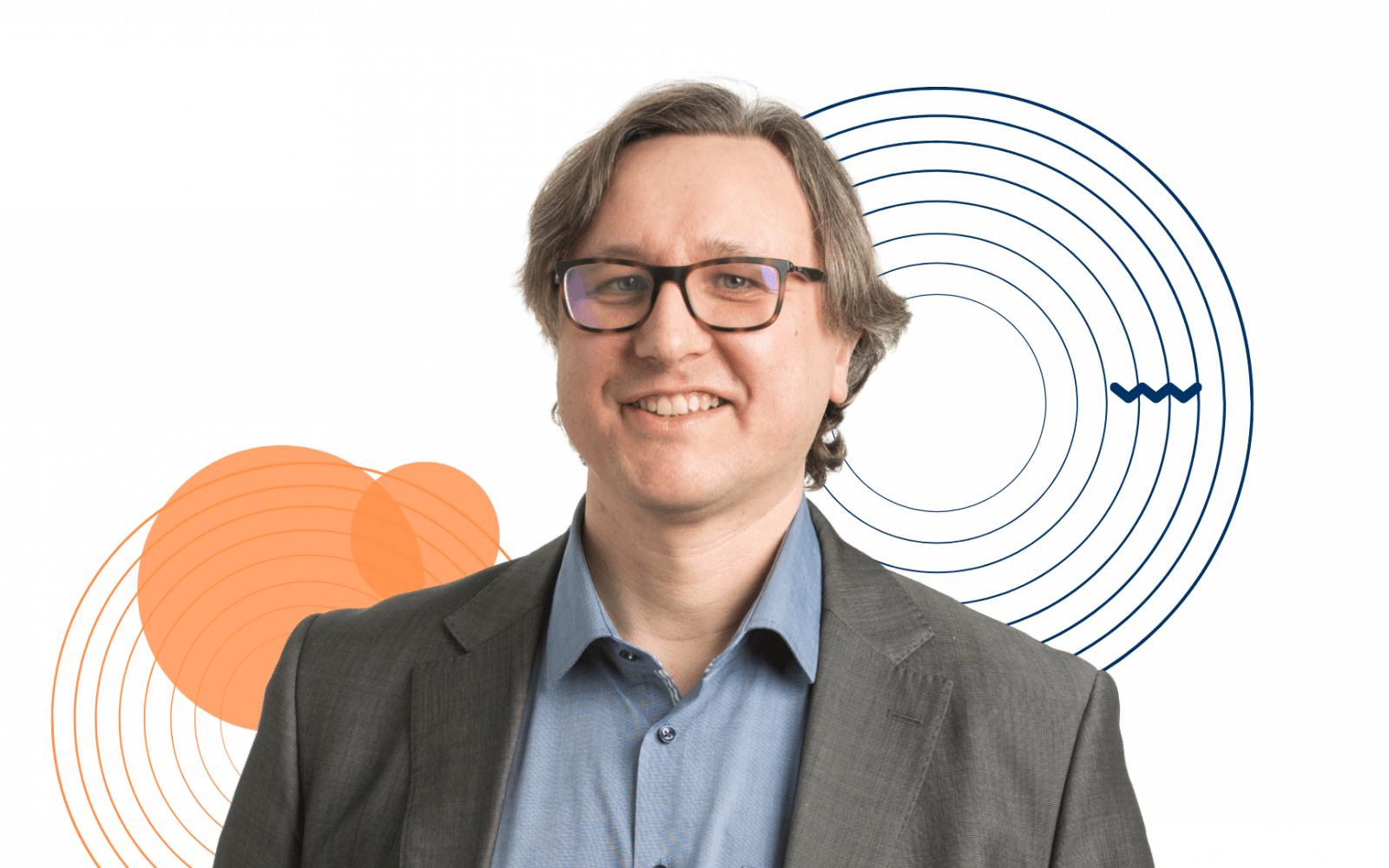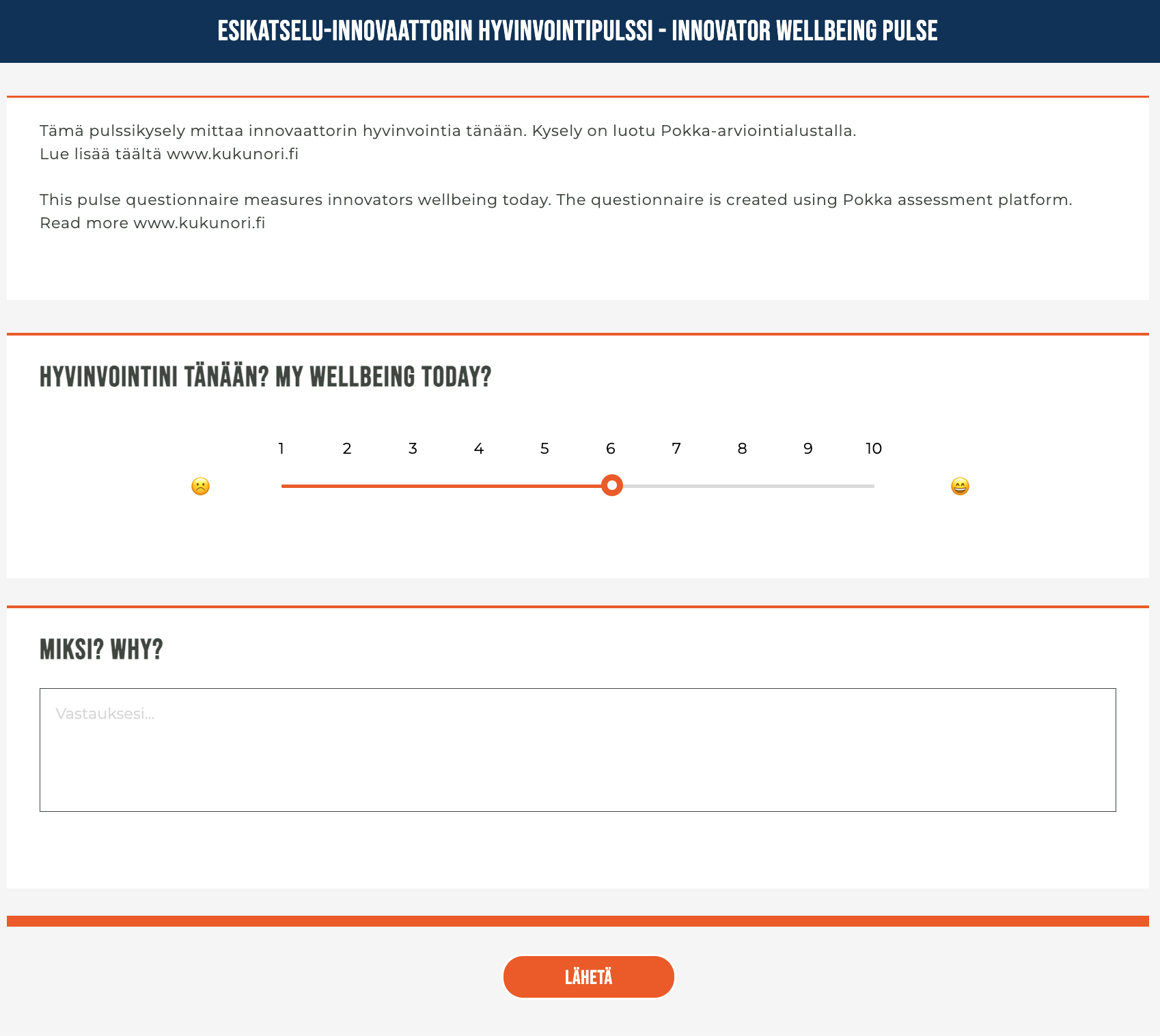How are we doing? - Let's take the pulse on the well-being of the innovators

Written by Markus Vähälä, Development Manager at Kukunori Central association for Wellbeing and Culture.
There is no innovation without innovators. What is the state of the innovators' well-being at the moment? Where can we find peace of mind at our workplaces? What is wrong, what is good and how should we build a better culture of well-being in the innovation sector?
Markus Vähälä: Innovation policies demand people and organizations to use our whole human capacity in demanding ways: to think, to cooperate, to do research, to learn, to lead, to travel, to adjust and to produce sustainable innovations. What’s the point of innovating, if the culture around innovations is not sustainable? Who cares about innovators' well-being and what should we do about it?
For sustainable well-being we need to create a new culture around innovators
Markus Vähälä: The demands and wicked challenges of our lifetime create a challenging situation for those who are expected to innovate new solutions and build new social entrepreneurial ecologies around these innovations. As the world seems to offer more opportunities than ever and capabilities of working around the clock, around the world, on all timezones, we need to consider our role and responsibility in creating a sustainable well-being culture around innovators. After all, innovators are human beings too!
Well-being is not only our subjective experience or hard objective data, but happens in between, in the interaction of people, actions and environments. Measuring mental health and well-being overall can be a tricky task, but in the spirit of doing-it-anyhow, Kukunori has created a new digital well-being assessment platform called Pokka. It enables everybody to explore individual well-being responses and compare these to anonymous databases covering nearly 500 organizations in Finland with thousands of responses collectively. The quick and ready questionnaires cover anything from psychosocial wellbeing to participation and anything people need to measure and monitor well-being in non-governmental, public and private organizations working in various fields.
Create well-being data, create positive change
Markus Vähälä: During Waves summit on 15 September 2022, I asked the participants to estimate their wellbeing now and explain “why?”. I used Pokka and a simple pad computer and passed it around event audiences and gathered 77 replies very quickly.
The analysis of this pulse measurement gave interesting results. People reported that their average state of wellbeing during the seminar day was 8.1 (at a scale between 1 ☹️ - 10 ?). People reported that the good result was affected by the positive impact of the Waves summit. It allowed innovators to meet in person with likeminded people, learn about the work and opportunities arising from the presentations and panel discussions and to build personal inspiration to fuel their own work around innovations. What would have been the result on an average day?
Kukunori facilitates the largest mental health network around working places in Finland called Mielenturvaa. It includes organizations reaching over 3 million Finnish citizens. Compared with the general Pokka mental health pulse assessment at the same time (8,5), the innovators scored worse than the Finnish working places on average.
What should we do about well-being?
The innovators indicated many factors that are reducing their experience of well-being: stress at work and at home, too many things going on at the same time and problems in physical health. The innovators also identified several factors that are maintaining and building well-being: the quality of sleep, physical exercise and mental health management.
Innovators seem to be good at identifying factors that are supporting and increasing well-being and things that are reducing and making it difficult to maintain well-being. That is very promising for our shared responsibility in building a sustainable innovation ecology where personal well-being is recognized, appreciated and taken care of collectively.
From the learning we created through conversations, discussions and the Pokka assessment at the Waves summit, we can conclude that:
- The feeling of competence around our ability to create individual and collective positive experiences around well-being creates resilience in the face of future affectors.
- Making it easy to measure, analyze, sensemake collectively and act together for better well-being is good for you. It creates a sense of understanding, ownership, commitment and control over matters that might feel a bit abstract at first.
- Make sure that you have enough time and places to rejuvenate yourself creating balance in well-being.
- Focus on the classics: quality of sleep, exercise and nutrition.
- Become thankful in your opportunity to be an innovator.
- Find a working environment that is supporting your well-being and people you feel safe to be inspired with.
- You are not a robot, your well-being varies day-to-day and at different points in life.
- Even success and reaching your goals might tax your well-being.
- It’s an ecology! Take responsibility in creating an adjustable, supportive and flexible innovating culture and environment for your well-being together with the people you work with.
- Well-being is everybody’s business.
Intrigued to know more results on this well-being research?
Listen to the newest episodes from Kukunori's podcast series, with Tomas Björkman (author, social entrepreneur and the Founder of Ekskäret Foundation in Stockholm) as well as Benjamin Pitkänen (Ashoka's Young Changemaker of the Year 2022 and founding member of the Viral Vegans Animal Rights Association). These and more can be found on Spotify.
Kukunori is the Central association for Wellbeing and Culture. Its 44 member organizations help and support over 15.000 individuals and famililes with mental health and substance abuse challenges, building inclusion, well-being and new opportunities and platforms for innovators emerging from diverse communities and walks of life.
Markus Vähälä works as Development Manager and the international coordinator at Kukunori The Central Association of Culture and Wellbeing. He is a social innovator and leads the technology team developing the Pokka wellbeing assessment platform and facilitates the largest network around mental health at working places in Finland. He is also a cabinet member of Systems Change Finland and the CEO of international Citizen Network cooperative linking together over 240 organizations and 1000 change makers around the world.

Even though the average was 8.1, the results deviate. How are the people doing who gave 4 - 6? How could we support them? Why did 6 people give 10? Could we learn something from their ability to create a personal feeling of well-being?

This is the innovator wellbeing pulse questionnaire in Pokka. It is very simple and it is easy and quick to use. You can use the same questionnaire daily, weekly or monthly using several digital platforms and keep track of how your innovators are experiencing wellbeing.